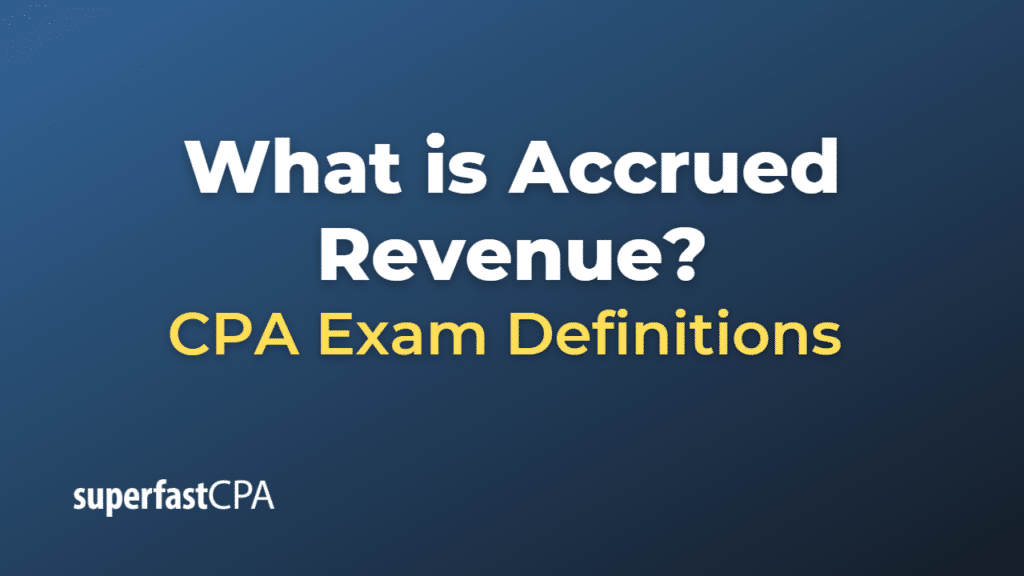Accrued Revenue
Accrued revenue is an accounting concept that refers to the recognition of revenue earned for goods delivered or services rendered during a specific accounting period, but for which payment has not yet been received. Accrued revenue arises in businesses that follow the accrual basis of accounting, where revenues are recognized when they are earned, not when the cash is received.
Accrued revenue is recorded as an asset on the balance sheet, usually under current assets, as it is expected to be converted into cash within a short period, typically within a year. Recording accrued revenue ensures that a company’s financial statements accurately reflect its financial performance and the revenues earned during an accounting period, providing a clearer picture of its financial health for management, investors, and other stakeholders.
To record accrued revenue, a company would make a journal entry at the end of the accounting period, debiting the accrued revenue account (or accounts receivable) and crediting the revenue account. Once the payment is received from the customer, the company would reverse the accrued revenue and increase the cash account with a corresponding journal entry.
Example of an Accrued Revenue
Let’s consider a hypothetical example to illustrate accrued revenue.
Suppose a web development company, WebPro, provides services to a client in December, completing a project worth $8,000. The client is billed for the completed work, but the payment is not due until January 15th. WebPro’s accounting period ends on December 31st.
To recognize the revenue earned in December, even though the payment has not yet been received, WebPro would record accrued revenue at the end of the accounting period. The journal entry for this would be:
Debit: Accounts Receivable (or Accrued Revenue) – $8,000 Credit: Service Revenue – $8,000
This entry records the revenue earned in December and the accrued revenue as an asset on WebPro’s balance sheet.
When the client pays the $8,000 invoice on January 15th, WebPro would record the following journal entry to reverse the accrued revenue and increase the cash account:
Debit: Cash – $8,000 Credit: Accounts Receivable (or Accrued Revenue) – $8,000
By recording the accrued revenue, WebPro ensures that its financial statements accurately reflect its financial performance and the revenues earned during the accounting period, providing a clearer picture of its financial health for management, investors, and other stakeholders.












